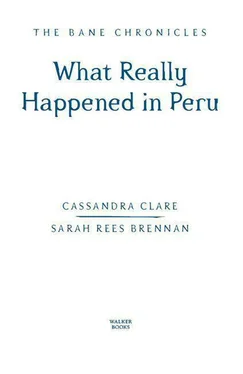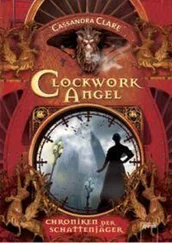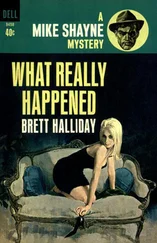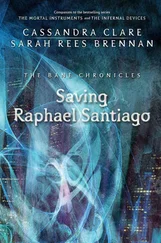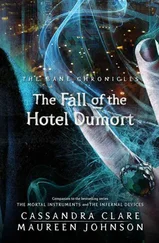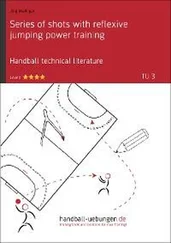But, like love, fire didn’t last.
“Do you think that eventually our kind becomes far enough removed from humanity that we transform into creatures that are untouchable and unlovable by humanity?” Magnus asked.
Ragnor and Catarina stared at him.
“Don’t answer that,” Magnus told them.
“That sounded like the question of a man who doesn’t need answers. That sounded like the question of a man who needs another drink. Here we go!”
He lifted a glass. Ragnor and Catarina did not join him, but Magnus was happy to make the toast on his own.
“To adventure,” he said, and drank.
Magnus opened his eyes and saw brilliant light, felt hot air drag across his skin like a knife scraping across burned bread. His whole brain throbbed and he was promptly, violently sick.
Catarina offered him a bowl. She was a muddle of white and blue in his blurred vision.
“Where am I?” Magnus croaked.
“Nazca.”
So Magnus was still in Peru. That indicated that he had been rather more sensible than he’d feared.
“Oh, so we went on a little trip.”
“You broke into a man’s house,”
Catarina said. “You stole a carpet and enchanted it to fly. Then you sped off into the night air. We pursued you on foot.”
“Ah,” said Magnus.
“You were shouting some things.”
“What things?”
“I prefer not to repeat them,” Catarina said. She was a weary shade of blue. “I also prefer not to remember the time we spent in the desert. It is a mammoth desert, Magnus. Ordinary deserts are quite large.
Mammoth deserts are so called because they are larger than ordinary deserts.”
“Thank you for that interesting and enlightening information,”
Magnus croaked, and tried to bury his face in his pillow, like an ostrich trying to bury its head in the sand of a mammoth desert. “It was kind of you both to follow me. I’m sure I was pleased to see you,” he offered weakly, hoping that this would lead to
Catarina’s bringing him more liquids and perhaps a hammer with which he could smash in his skull.
Magnus felt too weak to move in quest of a liquid, himself. Healing magic had never been his specialty, but he was almost certain that moving would cause his head to topple from his shoulders. He could not allow that to happen. He had confirmation from many witnesses that his head looked superb where it was.
“You told us to leave you in the desert, because you planned to start a new life as a cactus,” Catarina said, her voice flat.
“Then you conjured up tiny needles and threw them at us. With pinpoint accuracy.”
Magnus chanced another look up at her.
She was still very blurry. Magnus thought this was unkind. He’d believed they were friends.
“Well,” he said with dignity.
“Considering my highly intoxicated state, you must have been impressed with my aim.”
“‘Impressed’ is not the word to use to describe how I felt last night, Magnus.”
“I thank you for stopping me there,”
Magnus said. “It was for the best. You are a true friend. No harm done. Let’s say no more about it. Could you possibly fetch me—”
“Oh, we couldn’t stop you,” Catarina interrupted. “We tried, but you giggled, leaped onto the carpet, and flew away again. You kept saying that you wanted to go to Moquegua.”
Magnus really did not feel at all well.
His stomach was sinking and his head was spinning.
“What did I do in Moquegua?”
“You never got there,” Catarina said.
“But you were flying about and yelling and trying to, ahem, write messages for us with your carpet in the sky.”
Magnus had a sudden vivid memory, wind and stars in his hair, of the things he had been trying to write. Fortunately, he didn’t think Ragnor or Catarina spoke the language he had been writing in.
“We then stopped for a meal,” Catarina said. “You were most insistent that we try a local specialty that you called cuy . We actually had a very pleasant meal, even though you were still very drunk.”
“I’m sure I must have been sobering up at that point,” Magnus argued.
“Magnus, you were trying to flirt with your own plate.”
“I’m a very open-minded sort of fellow!”
“Ragnor is not,” Catarina said. “When he found out that you were feeding us guinea pigs, he hit you over the head with your plate. It broke.”
“So ended our love,” Magnus said.
“Ah, well. It would never have worked between me and the plate anyway. I’m sure the food did me good, Catarina, and you were very good to feed me and put me to bed—”
Catarina shook her head. She seemed to be enjoying this, like a nightmare nurse telling a child she did not especially like a terrifying bedtime story. “You fell down on the floor. Honestly, we thought it best to leave you sleeping on the ground. We thought you would remain there for some time, but we took our eyes off you for one minute, and then you scuttled off. Ragnor claims he saw you making for the carpet, crawling like a huge demented crab.”
Magnus refused to believe he had done any such thing. Ragnor was not to be trusted.
“I believe him,”
Catarina said treacherously. “You were having a great deal of difficulty walking upright even before you were hit with the plate. Also, I believe the food did not do you much good at all, because then you flew all over the place exclaiming that you could see great big monkeys and birds and llamas and kitty cats drawn on the ground.”
“Gracious,” Magnus said. “I progressed to full hallucinations? It’s official. That sounds like . . . almost the most drunk I have ever been. Please don’t ask questions about the most drunk I have ever been. It’s a very sad story involving a birdcage.”
“You were not hallucinating, actually,”
Catarina said. “Once we stood on the hills yelling ‘Get down, you idiot,’ we could see the vast drawings in the ground as well. They’re very grand and beautiful. I think they were part of an ancient ritual to summon water from the earth. Seeing them at all was worth coming to this country.”
Magnus still had his head sunk deep in the pillow, but he preened slightly.
“Always happy to enrich your life, Catarina.”
“It was not grand or beautiful,”
Catarina said reminiscently, “when you were sick all over those mystical and immense designs from a civilization long gone by. From a height. Continuously.”
He briefly felt regret and shame. Then he mostly felt the urge to get sick again.
Later, when he was soberer, Magnus would go to see the Nazca Lines, and commit to memory the trenches where gravel had been cut away to show naked clay in sprawling, specific patterns: a bird with its wings outstretched in soaring flight, a monkey with a tail whose curves
Magnus thought positively indecent—
obviously, he approved—and a shape that might have been a man.
When scientists discovered and spent the 1930s and 1940s investigating the
Nazca Lines, Magnus was a little annoyed, as if shapes scored in stone were his own personal property.
But then he accepted it. That was what humans did: They left one another messages through time, pressed between pages or carved into rock. Like reaching out a hand through time, and trusting in a phantom hoped-for hand to catch yours.
Humans did not live forever. They could only hope what they made would endure.
Magnus supposed he could let the humans pass their message on.
But his acceptance came much, much later. Magnus had other things to do the day after he first saw the Nazca Lines. He had to be sick thirty-seven times.
After the thirtieth time Magnus was ill, Catarina became concerned.
“I really think you might have a fever.”
Читать дальше
